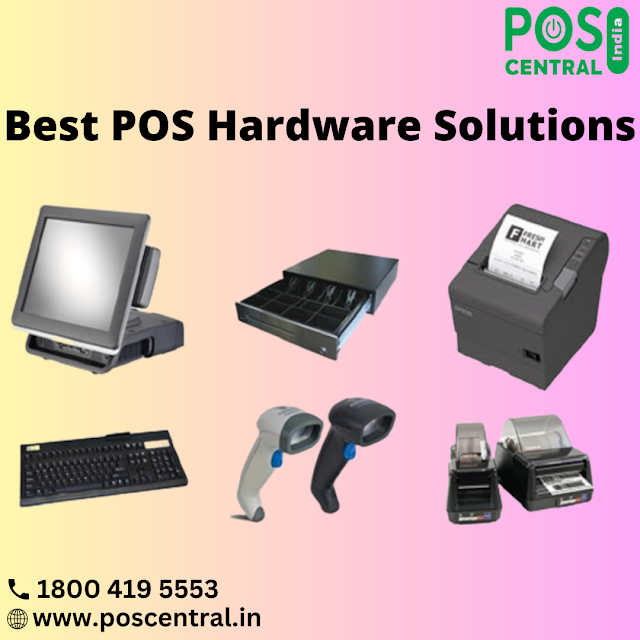What are POS Solutions, and How Do They Work?
Point of Sale (POS) solutions refer to the hardware and software systems that retailers use to process transactions when customers purchase goods or services. POS solutions have become essential for modern business operations because they enable retailers to simplify their transactions, improve accuracy, and enhance the overall customer experience.
Here's How POS Solutions Work:
- First, a retailer inputs the details of a product or service into the POS system, including its name, price, and any applicable taxes or discounts.
- Next, the system generates an itemized list of the customer's purchases and calculates the total amount due.
- The customer then pays for their purchases, and the POS system records the transaction and updates the retailer's inventory and financial records accordingly.
- POS systems can also perform other functions, such as generating sales reports, managing customer data, and tracking employee productivity.
- Modern POS solutions often use cloud-based software, enabling businesses to access their data from anywhere and providing greater security and scalability.
Overall, POS hardware equipment is essential for retailers of all sizes, enabling them to streamline operations, improve customer service, and make more informed business decisions.
Buying POS equipment is an investment instead of an added expense. It is a machine that will scan products, adds their prices to bills, gives discounts, and add taxes to produce final bills. It can do many things for your business.
1. Ease of Use
Presently, you have a trained accountant managing your sales window. He checks every product before entering its details like price; uses a calculator to do necessary deductions and additions and prepares the final bill. Meanwhile, the buyers wait. Manual billing is both laborious and prone to human errors. But a POS system can make things simpler and easier.
2. Inventory Management
Point-of-sale software is better equipped to manage your inventory that is continuously depleting with every sale. Every time a product is sold, your POS system will show its availability so that can fill your supplies before the product goes out of stock.
3. Accounts ManagementThe software will provide real help with accounts. It will create a digital accounts book and save the data for report generation and future uses. You can easily check and verify details about products sold, discounts offered, taxes paid, and profit earned from the POS system.
4. Customer Data
Point-of-sale hardware will become your sales staff. It will record the details of every customer for marketing. You can check the personal preference of customers and make offers according to their preferences. Also, it will help in understanding the buying behavior of customers.
5. Employee ManagementThe software will even help in managing employees. For example, the machine can be used to record biometric attendance or for entering the entry and exit times of employees.
There could be more benefits of using POS solutions but the above-mentioned are the biggest advantages of a point-of-sale system. You can check how others are using these solutions and take ideas from your competitors.
If you are worried about investment in setting a point of sale system then shed all your worries as it is a one-time investment and it won’t cost you dearly. Also, you need not worry about providing any type of training to your employees for using a POS machine.
Overview of Different Types of POS hardware Available in the Market
Point of Sale hardware is essential for any modern retail business, helping to streamline transactions and improve the customer experience. Here's an overview of some of the most common types of POS hardware, including cash drawers, printers, barcode scanners, and POS terminals:
- POS Terminals: A complete POS system that includes a computer or tablet, touchscreen display, cash drawer, barcode scanner, and receipt printer. It provides a centralized location for managing sales, inventory, and customer data.
- Cash Drawers: A secure and organized way to store cash, checks, and other payment methods. Cash drawers can be connected to a POS system and opened automatically or manually.
- Barcode Scanners: A device that reads barcode labels on products, enabling faster and more accurate checkout. Some scanners can also read QR codes and RFID tags.
- Receipt Printers: A device that prints customer receipts and other transaction-related documents. Thermal printers are the most common type, producing high-quality prints quickly and quietly.
Overall, businesses have several options when it comes to choosing POS hardware. The type of hardware chosen will depend on the business's specific needs, size, and budget. A reputable POS vendor can help businesses to select the proper hardware for their needs, including cash drawers, printers, barcode scanners, and POS terminals.












.png)